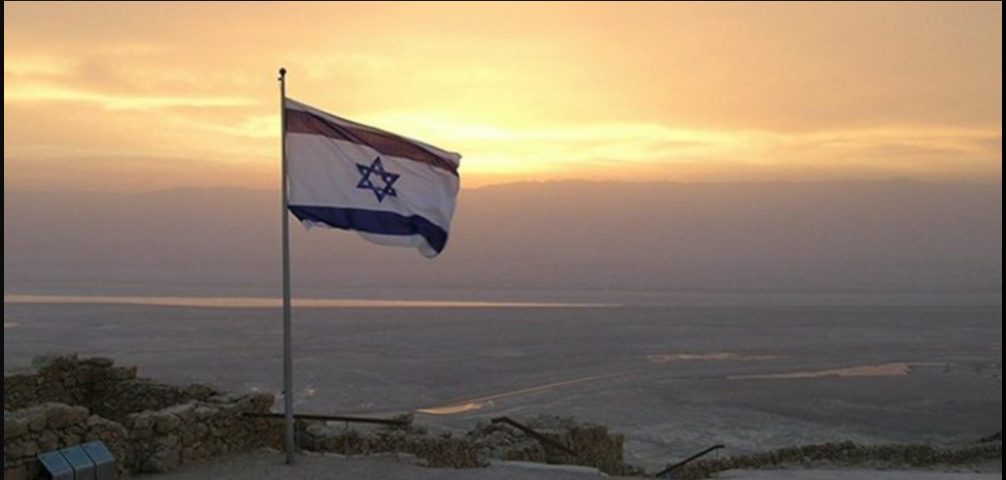by Yanis Iqbal, published on EurasiaReview, January 1, 2021
Merry Christmas from the Zionist Occupier
On 25 December, 2020, Israel bombed Gaza for six continuous hours as much of the world celebrated Christmas. A children’s hospital, a rehabilitation center for people with disabilities, a mosque, as well as private residences, were damaged. A six-year-old girl and a young man were injured, and much of the targeted region lost water and electricity. A fire broke out at the location of the airstrike as the firefighters worked all night to douse the fire in the Israeli assault that took place an hour after midnight.
A person living in the Maghazi refugee camp just a mile from one of the attacked sites described the attacks in the following way:
“We felt a tremor inside the house, the sound was very violent. The children woke up at night crying and we soothed them… [They] were asking us whether there would be a war. It was a terrifying night and the bombing was violent. Thank God we were spared.”
Dr. Majed Hamadah, manager of the damaged pediatric hospital, told the news agency Palestine Chronicle that
“It was a horrible night for the children at the Al-Durrah Hospital, due to the missiles fired by the Israeli occupation warplanes, which caused serious damage to the hospital, spreading fear and panic among children and their families”.
Zionism – A Terrorist Ideology
The fundamental inhumanity of bombing Gaza even on the eve of Christmas and the corporate media’s non-coverage of this event derives directly from the ideology of Zionism which has succeeded in legitimizing one of the most racist acts in contemporary history – the establishment of Israel.
1948, the year the Israeli State was established, was also the year of the Palestinian Nakba or catastrophe when 750,000 Palestinians were forcibly expelled from their homeland and more than 500 Palestinian villages, towns and cities were deliberately destroyed.
Israel’s founding violently fragmented the Palestinian people and pushed them into multiple zones of space and classification: those who remained in their homeland, refugees driven to join the original inhabitants of Gaza, East Jerusalem, and the West Bank (who fell under Israeli military occupation in 1967), and those evicted beyond the borders of historic Palestine, to live either in refugee camps in neighboring Arab states or across the world.
Despite Israel’s birth being entirely synonymous with death, displacement and torture for Palestinians, Zionists have continued to overtly and covertly condone it. Ben Morris, an Israeli historian, has been particularly forthcoming in his frank account of 1948:
“There are circumstances that justify ethnic cleansing,” he argues in an interview in Ha’aretz. Just as “the great American democracy could not have been created without the annihilation of the Indians,” he adds, in 1948, “a Jewish state would not have come into being without the uprooting of 700,000 Palestinians. Therefore it was necessary to uproot them. There was no choice but to expel that population. It was necessary to cleanse the hinterland and cleanse the border areas and cleanse the main roads. It was necessary to cleanse the villages from which our convoys and our settlements were being fired on.”
The only problem Morris sees with what happened in 1948 is that Ben-Gurion did not go far enough:
“Even though he understood the demographic issue and the need to establish a Jewish state without a large Arab minority, he got cold feet during the war. In the end, he faltered.” Perhaps, Morris muses, “if he was already engaged in expulsion, maybe he should have done a complete job.” For “if the end of the story turns out to be a gloomy one for the Jews, it will be because Ben-Gurion did not complete the transfer in 1948. Because he left a large and volatile demographic reserve in the West Bank and Gaza and within Israel itself.”
Morris is not alone in supporting terrorism, liquidation and dehumanization. In 1982, Menachem Begin, a former Israeli Prime Minister, remarked to the Knesset:
“Our race is the Master Race. We are divine gods on this planet. We are as different from the inferior races as they are from insects. In fact, compared to our race, other races are beasts and animals, cattle at best. Other races are considered as human excrement. Our destiny is to rule over the inferior races. Our earthly kingdom will be ruled by our leader with a rod of iron. The masses will lick our feet and serve us as our slaves.”
“My Struggle Embraces Every Struggle”
On the first anniversary of Lumumba’s assassination, Israeli Communist Party (ICP) activist and poet Hanna Abu Hanna wrote:
In Stanleyville, I witnessed armies marching forth
the path to their freedom is my path…
My struggle embraces every struggle
and encompasses the world from pole to pole…
‘Lumumba!’ A chant that echoes wide
and reverberates across a raging Africa.
A universalist conceptualization allows us to understand that every progressive struggle is incomplete as long as it fails to address the question of Israel’s genocidal and annexationist agenda. Talking about various humanist ideals while consistently ignoring the blatant brutalization of Palestinians by Zionists is empty at best and hypocritical at worst. Recognizing the urgency of Palestine’s decolonization as an ineluctable component of a global project for social justice will help put an end to Israel’s campaign of ethnic cleansing which seems to increase every day in its exterminatory efficiency.
Yanis Iqbal is a student and freelance writer based in Aligarh, India and can be contacted at yanisiqbal@gmail.com. His articles have been published by different magazines and websites such as Monthly Review Online, ZNet, Green Social Thought, Weekly Worker, News and Letters Weekly, Economic and Political Weekly, Arena, Eurasia Review, Coventry University Press, Culture Matters, Global Research, Dissident Voice, Countercurrents, Counterview, Hampton Institute, Ecuador Today, People’s Review, Eleventh Column, Karvaan India, Clarion India, OpEd News, The Iraq File, Portside and the Institute of Latin American Studies.
